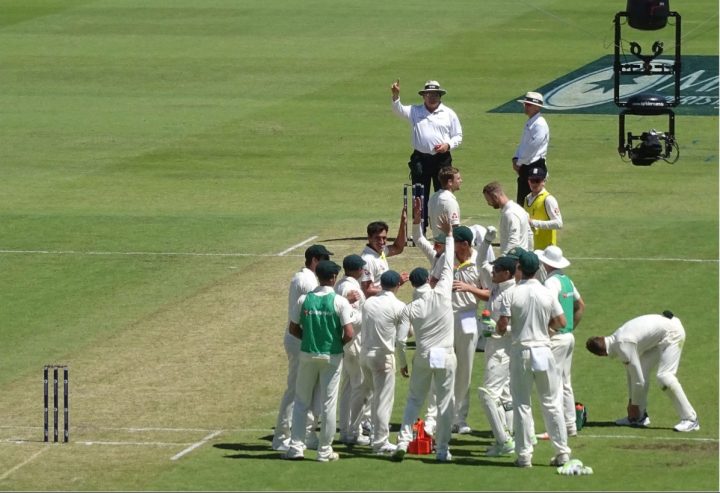You may have noticed we’ve been really quiet about all the DRS controversies thus far in the Ashes – particularly the notorious Stuart Broad incident; you know, the one when he hit the cover off the ball and refused to walk. We didn’t say much at the time because the whole affair was blown totally out of proportion.
I mean, since when has a batsman refusing to walk been anything other than commonplace in test cricket – especially when our friends from down under are involved?! It might feel a bit awkward – and nobody likes to see blatant kidology – but if one team starts walking, they’d put themselves at a disadvantage unless the other team does too.
One of the more, err, ‘interesting’ arguments used to condemn Broad is that batsmen should walk when it’s an obvious edge, then cheat like hell when it’s only a feather. This logic means that it’s perfectly ok for Brad Haddin, with the game on the line, to wait for the umpire’s decision in the dying moments at Trent Bridge (he later admitted he knew he’d edged it), but not alright for Broad to stand his ground two days beforehand. I’ve never understood this argument … mainly because it’s utter garbage.
Anyway, we can argue the toss about this one for eternity. Batsmen refusing the walk when they’ve nicked it is pretty much par for the course these days. Broad did absolutely nothing that Haddin, Watson, Clarke (top guy, but a notorious non-walker) wouldn’t have done.
But what if – and just stay with me on this one – a batsman blatantly steps on his stumps but refuses to walk? And what if he did this twice, in two balls? And what if, as seems likely, the umpire at square leg (in the days before neutral umpires) saw it all, but did absolutely nothing? Surely not. Well think again my friends.
Any Australians who still hold a grudge against Broad should watch this … and then eat some humble pie.









You think after the first hit wicket, the square leg umpire would bother to watch.
It doesn’t make broad right…